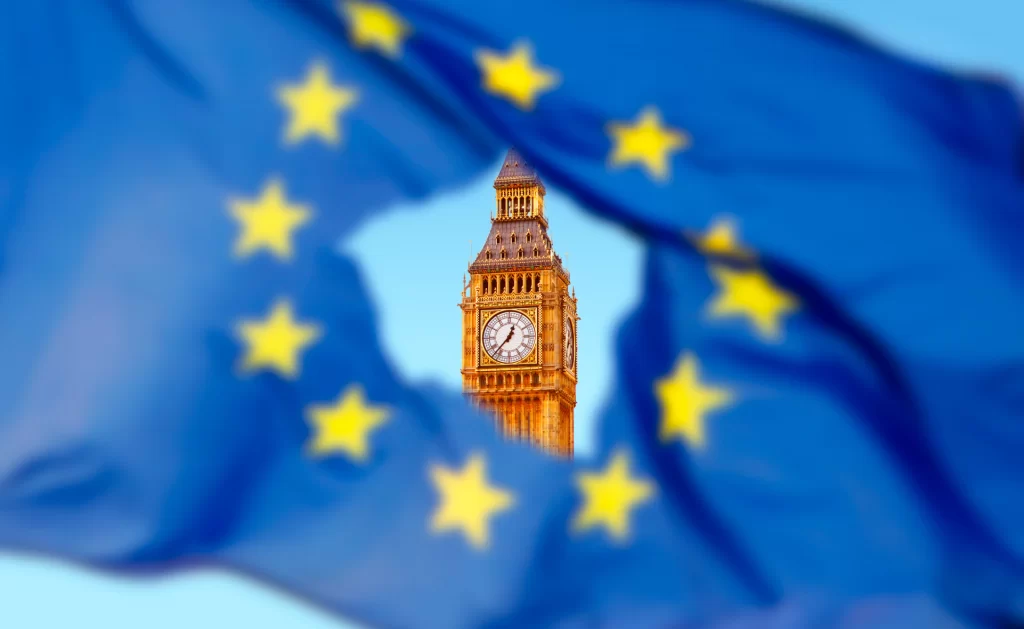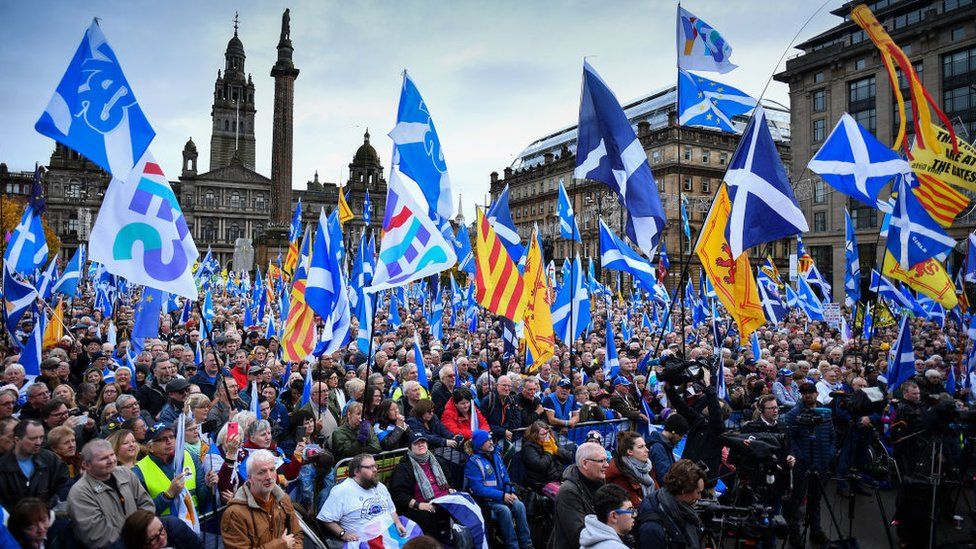When Britain formally left the European Union (EU) on January 31, 2020, its supporters celebrated it as a restoration of “British sovereignty”, but Brexit has given fresh impetus to the disintegration of the British state, with support for Scottish independence and Irish unity rising. The EU, while generally sympathetic to these aspirations, has remained largely passive due to its instinctive dislike of political rupture. This stance may need to change.
The Irish border has caused serious difficulties both during Brexit negotiations and since. A porous new EU frontier in a post-conflict zone, it threatened the EU’s Single Market and Customs Union and demanded imaginative solutions. The eventual answer, the “Protocol on Ireland/ Northern Ireland” to the Brexit Withdrawal Agreement, negotiated a “best of both worlds” scenario: protecting the Single Market, the regional economy, British jurisdiction, and rights set out in the 1998 Good Friday Agreement.
However, Britain’s reckless treatment of the border and the North of Ireland has breathed fresh life into the Irish unity debate. In the North, where a majority supported Remain, Brexit threatened the “peace dividend” – two decades of social and economic integration. While the EU was not a guarantor of Ireland’s peace process, it was an important condition – Britain and Ireland joined the economic community at the same time and their shared membership was an assumed element of negotiations.
Brexit broke this fragile status quo, and there is a desire in the North – including among unionists – to minimise or reverse the damage. While imperfect, the Protocol has reduced – but not removed – the harm caused by a Brexit border. Even so, the London government and political unionism in the North have worked resolutely to undermine it, demanding renegotiation, threatening suspension, and echoing threats of violence from loyalist paramilitaries.
 London’s bad faith refusal to honour the Protocol have now soured EU-Britain relations to the point where a possible trade war is now being openly discussed. In this maelstrom, Irish unity remains the only reliable long term solution, providing stability for communities and businesses via a return to the EU and its privileges, and resolving many of the Brexit issues plaguing both London and Brussels, including on the Single Market and Customs Union.
London’s bad faith refusal to honour the Protocol have now soured EU-Britain relations to the point where a possible trade war is now being openly discussed. In this maelstrom, Irish unity remains the only reliable long term solution, providing stability for communities and businesses via a return to the EU and its privileges, and resolving many of the Brexit issues plaguing both London and Brussels, including on the Single Market and Customs Union.
There is even an existing framework: 1998’s Good Friday Agreement – a binding international treaty – envisions reunification by democratic vote, and in April 2017 the EU stated clearly that the region could automatically rejoin the bloc as a constituent part of an existing member state, Ireland, avoiding a tedious and potentially fraught accession process. For the EU – which views itself as a force for peace – there is also the opportunity to take credit for resolving a centuries-long conflict.
Significant barriers remain, however. The power to call a vote rests solely with the British government, which would need to be pressured into taking such a step. A proactive Dublin government would also be vital. However, the current Irish government refuses to make any preparations, viewing Irish unity as a potential threat to its own short-term interests. Ireland’s mainstream parties also act as informational gate-keepers, misrepresenting the potential of Irish unity to their political allies in Europe.
Nonetheless, a far-reaching debate on Irish unification is taking place, led by civil society. Opinion polls also suggest the pro-unity, leftwing party Sinn Féin consistently leading in polls across the island. A Sinn Féin-led Dublin government is now a real prospect, with unification a key goal. It would be remiss of the EU not to engage – in fact, as tension with London builds, Irish unity ought to be seen as the solution to an intractable problem.

The situation in Scotland, where pro-EU and independence sentiment remain high, is more complicated. Unlike Ireland, Scotland has no legal or constitutional mechanism like the Good Friday Agreement – a vote would require the assent of the London government. The alternative – a unilateral referendum and declaration of independence – would come at high cost, a struggle to achieve international recognition and endangering Scotland’s prospects of rejoining the EU.
Scotland has been discussing independence intensely for over a decade, with support for EU membership a constant theme. Unlike the North of Ireland, an independent Scotland has no easy route back to the EU, and would have to apply under the Article 49 TEU accession procedure. With 47 years of membership experience, Scotland should meet the political and economic dimensions of the Copenhagen criteria fairly easily, positioning it well to rejoin the EU in as little as 4-5 years.
Scotland would, however, need to (formally) commit to adopting the euro, and undertake numerous adjustments demanded by the EU, a process complicated by post-Brexit divergence from EU laws and regulations. The Scottish parliament passed legislation earlier this year confirming that – in devolved areas of government – Scotland will align to EU laws as much as possible, but divergence by the British government in so-called “reserve” matters will still have an enormous impact.
Finally, Scotland would need unanimous acceptance from existing member states. Concerns have been raised of a “Spanish veto”, concerned that Scotland’s membership of the EU might encourage the Catalan independence movement. However, the Spanish state’s fears appear to focus on respect for internal politics and constitutional affairs. In 2018, the Spanish foreign minister said Madrid would accept a Scottish accession application if it complied with the Britain’s own constitutional arrangements.

